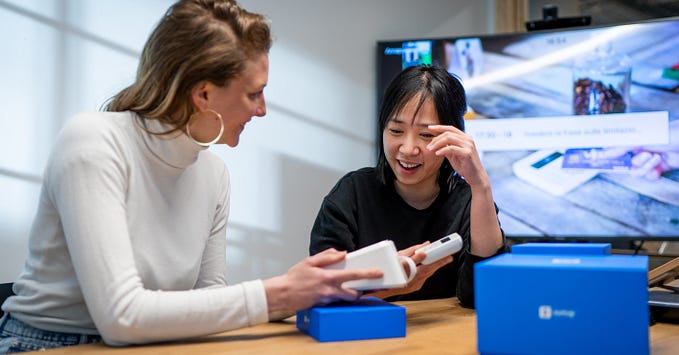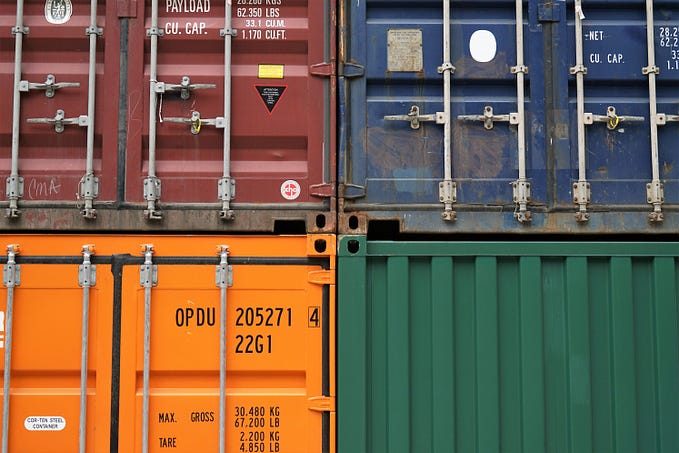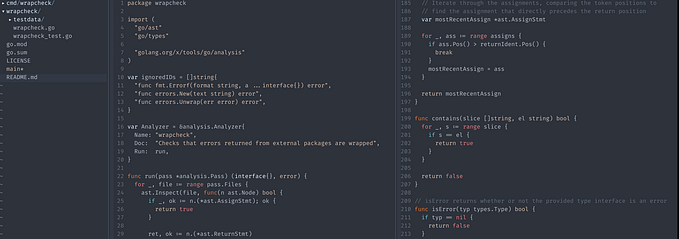Health Tech: Caroline Laurenson On How Kindspace’s Technology Can Make An Important Impact On Our Overall Wellness
An Interview With Luke Kervin

Build strong networks to open up collaboration opportunities. Many of our projects have come about through networking and from us sharing our knowledge. One which we’re really excited about kicking off very soon is with a social care charity, to create a voice accessible version of their web-based services directory. We also have a new voice application coming soon, created in collaboration with a digital theatre company, that came about through a business accelerator programme that we were on together.
In recent years, Big Tech has gotten a bad rep. But of course many tech companies are doing important work making monumental positive changes to society, health, and the environment. To highlight these, we started a new interview series about “Technology Making An Important Positive Social Impact”. We are interviewing leaders of tech companies who are creating or have created a tech product that is helping to make a positive change in people’s lives or the environment. As a part of this series, I had the pleasure of interviewing Caroline Laurenson.
Caroline Laurenson and her husband, Thomas are the brains behind Kindspace — A holistic wellbeing voice application for Amazon Alexa, designed to use responsive AI to track and improve wellbeing.
Thank you so much for joining us in this interview series. Before we dive in, our readers would love to learn a bit more about you. Can you tell us a bit about your childhood backstory and how you grew up?
From the outside many people might believe that I had an idyllic upbringing. I grew up in a beautiful rural village on the West Coast of Scotland. But the truth is I have a very dysfunctional family, my dad was an alcoholic which impacted us badly financially and also dealing with the mental health consequences of that was hard. I was diagnosed with cerebral palsy around the time I started school. I missed a lot of school in those early years, going back and forth for specialist physio-treatments. School was my savior, it gave me the opportunity to create a life for myself and provide for my family and most importantly look after my mum when she fell ill with terminal bowel cancer.
Can you share the most interesting story that happened to you since you began your career?
I have a quite unusual skill set. Before starting up our smart home tech business I worked in the offshore oil and gas industry as a Chemical Engineer.
I am really passionate about STEM and encouraging young people to consider career options in engineering and tech fields. In 2018 my career reached a turning point. I was burnt out and feeling undervalued in my role. Then I had this amazing opportunity to go on a Career Enhancement program with Equate Scotland, who are a fantastic organization that work on gender equality in the STEM industries. The program was meant to help women to move into and thrive in senior leadership positions and it helped me to get really clear on my values and that’s when I knew that I needed to leave my job and find my place in the world.
None of us are able to achieve success without some help along the way. Is there a particular person who you are grateful towards who helped get you to where you are? Can you share a story about that?
I miss my mum every day, she was literally strength personified. She was so resourceful and determined. Whenever I’m presented with a challenge or set-back it’s always her I think about, I imagine what she would say. I really don’t know how she coped with bringing us up when I was younger, but she always made me believe that I could do anything.
So much so that I only found out more about my disability when I was in my 30s and a doctor who was reviewing my records asked me about it. She never wanted me to be labelled or to feel different and worked so hard to help me learn how to walk properly.
Can you please give us your favorite “Life Lesson Quote”? Can you share how that was relevant to you in your life?
One saying that has always stuck with me that my mum used to say is “every cloud has a silver lining”. I even dressed up as a cloud one Halloween, carrying a little sign with these words on it. The climate on the West Coast of Scotland is very wet, so we were used to a lot of rain!
You are a successful business leader. Which three character traits do you think were most instrumental to your success? Can you please share a story or example for each?
I still feel a bit strange to think of myself as entrepreneurial. But what I’ve learned on my journey into business is that entrepreneurs have three key traits, they are people who see things that others do not, they keep going where others might give up and they are comfortable — to a certain degree — with taking risks.
As a Chemical Engineer by background, I excel at taking complicated things and giving them structure, working out the best way to execute a task, when for other people they wouldn’t even know where to start making sense of the information.
I definitely inherited my resourcefulness and determination from my mum, she battled cancer and ill health for a decade so I’m not afraid of facing things that feel difficult.
It’s the last entrepreneurial area, risk taking, that I would say has most strongly influenced this new path that I’m on and the one I have had to work on the most in terms of my mindset. I don’t see risk just as the classic all-or-nothing, remortgaging the family home gamble, but more about creating space to be vulnerable, to make mistakes, to be creative and put yourself out there without fear of being judged. As a recovering perfectionist, I’m realizing that it’s okay to get things wrong as this is where you can learn the most.
Ok super. Let’s now shift to the main part of our discussion about the tech tools that you are helping to create that can make a positive impact on our wellness. To begin, which particular problems are you aiming to solve?
When we were researching the issues and how best to help people be independent in their own homes we focussed on loneliness and how this impacts physical and mental wellbeing. What really struck me from this research was the tools for measuring loneliness and wellbeing can be a bit blunt and lacking in empathy.
As we know since the covid-19 pandemic, loneliness and declining physical and mental health has become something that many more people have experienced. This is a growing concern in terms of how health care systems can meet this increasing demand, when it was already very difficult to access support even before the pandemic.
There is also a huge stigma attached to aging and while older people can experience some difficulties interacting with technology, we need to be designing things which empower people rather than just the last line of defense safety nets that only help once a situation has already escalated.
As technology solution providers we need to really listen to what people want and focus on individual outcomes.
How do you think your technology can address this?
At TL Tech, our ethos is about creating a home that cares for you as you age and that can adapt as your needs change, a home that is smart but also kind.
Voice assistants are fast becoming the hub of the smart home, offering a seamless user interface. In the same way as you get apps for mobile phones, you get apps for smart speakers. So we started to explore whether talking with your voice assistant every day could help someone better manage their self-care and alleviate loneliness.
We spoke to doctors in A&E who said that particularly during the height of the covid-19 pandemic they were seeing people come in who were very sick and they wished that they had more insight into their wellbeing in the weeks leading up to them coming to hospital.
We created Kindspace for the Amazon Alexa smart speakers as a way for people to check-in with how they were feeling physically and mentally each day by talking to Alexa and as a place where they could access specially curated wellbeing related advice in audio format.
We’re currently working on adding the ability for a user to share their Kindspace data securely with carers/health professionals so that support can be provided proactively and ultimately, we envisage this data being used alongside emergency systems like fall detectors to help responders understand more about what may have led up to an event. With our expertise in smart home systems and IoT devices, this is another area we are keen to explore and integrate with Kindspace.
Can you tell us the backstory about what inspired you to originally feel passionate about this cause?
When my husband Thomas and I started TL Tech we honestly just thought we’d be like the plumbers of the smart home world. But we quickly saw that there are huge inequalities and that the people that can benefit from the tech the most are the least likely to be able to access it. Society left people behind with home computers and smartphones and we don’t want that to happen with smart homes as well.
Before we started to build Kindspace, I honestly didn’t realize how much our own lived experiences could add to the technology. Thomas and I have gone through some extremely tough times, so we know how important it is to have empathy and sensitivity to the situation of the person on the other side of the conversation.
At the start of the COVID-19 pandemic, faced with the reality that we couldn’t visit people’s houses anymore, we felt very strongly that we needed to do something to help our smart home customers to be better supported while they were shielding themselves from the virus. We very much wanted to create something that would help people experiencing loneliness create their own ‘kind spaces’ and signpost people to areas of support.
We see Kindspace as a crowdsourced directory of all the strategies that people use to help them live well and feel better. Kindspace brings together lived experiences and makes wellbeing information accessible.
How do you think this might change the world?
Voice assistant technology has a magical and unique way of connecting people. It opens up opportunities for people who may struggle to use other digital interfaces, particularly where someone is older or has an impairment.
In the next five years we aim to grow our Kindspace community to over 5 million people across the globe. We all have powerful lived experiences. Even in these darkest times there is still joy, but finding this and moving forward can be hard. We all have the ability to help each other through shared challenges, offering practical advice and a kind listening ear.
The benefits of voice in settings such as social care and helping manage healthy aging in the home are still to be better understood and quantified, but from our own observations it’s undeniable that people’s lives can be improved by technologies like the Amazon Alexa smart speakers.
The Kindspace data is significant from a societal and research point of view as it uses a similar model to the World Health Organization’s WHO-5 Wellbeing Index. This could give a rich insight into how the wellbeing of a population changes over time, what could be influencing those changes and where best to direct government resources.
Keeping “Black Mirror” and the “Law of Unintended Consequences” in mind, can you see any potential drawbacks about this technology that people should think more deeply about?
Voice applications in the consumer world are still in the very early days and it’s important that issues like privacy and digital ethics are properly considered, as well as transparency over how search results are returned.
We have a long way to go before people feel more comfortable using their voice to interact with technology, particularly where you are dealing with more sensitive information.
It’s interesting that the debate about voice technology and privacy can become so emotive, but I think it’s because using your voice inherently feels more personal than clicking a mouse or tapping on a screen, even though the data that you share can be broadly similar. Much like with other aspects of our digital lives there is always going to be a trade-off between the information that you share and the user experience, and unfortunately there are always going to be people out there that will try to take advantage of others.
Technology should never be about replacing human interaction. We support and advise a lot of social care organizations and this is often brought up as a concern. Too much technology can have a detrimental effect, for example automating someone’s door so they no longer have to get up to answer it, may result in declining mobility and accelerate aging, completely the opposite of what was intended. Or talking to a voice assistant may in fact make it harder for someone to feel comfortable talking to a real person.
Here is the main question for our discussion. Based on your experience and success, can you please share “Five things you need to know to successfully create technology that can make a positive social impact”? (Please share a story or an example, for each.)
Focus on the individual. Who is it for? Ask them what would make the most difference to them? In many of our projects when we’re approached to do one thing, it turns out that what is needed is something completely different, and you’re not going to know that unless you involve people in the discussion about what outcomes they want.
Try not to overcomplicate things, build up your activities or solution in layers. This is for two reasons, one you’re likely to have limited resources and two, you don’t want to overwhelm your customer, the person that you’re trying to help.
Understand what the bigger picture looks like and find out where the barriers are. For us one of the biggest barriers is our potential users need to have good internet connectivity in their homes. In today’s world access to digital services has become a necessity, but many people struggle with the cost, poor signal strength and the complexity of setting up and securing their home Wi-Fi.
Keep checking that the outcomes are what you intended, are you helping who you set out to help? Have there been any unintended impacts? Depending on the activities being undertaken, it can be challenging to define impact metrics, collect the data and review the outcomes. At the outset of your project, I’d encourage you to define an impact model that sets out who your target market is, how many people you are aiming to support and how you intend to change their lives.
Build strong networks to open up collaboration opportunities. Many of our projects have come about through networking and from us sharing our knowledge. One which we’re really excited about kicking off very soon is with a social care charity, to create a voice accessible version of their web-based services directory. We also have a new voice application coming soon, created in collaboration with a digital theatre company, that came about through a business accelerator programme that we were on together.
If you could tell other young people one thing about why they should consider making a positive impact on our environment or society, like you, what would you tell them?
I used to think that it was engineers that could change the world, but since becoming an entrepreneur I can see that for many people who choose this path it is almost like a calling, where you can be part of something far bigger and be instrumental in how we address society’s greatest challenges.
Is there a person in the world, or in the US with whom you would like to have a private breakfast or lunch, and why? He or she might just see this, especially if we tag them. :-)
I am a huge Brené Brown fan, I almost wish I’d had her teachings when I was growing up. Her work is so grounded and gives real practical advice on how to work through difficult emotions like feeling vulnerable, not being able to accept help and being judgemental or making up disaster stories.
Seeing things through this different lens has helped me to accept my life and my favourite piece of advice from her work is to always ask myself “what if they are doing the best that they can?”.
How can our readers further follow your work online?
I am on LinkedIn and like to post there regularly about what we’re up to and to share things which are useful around the topics of wellbeing, healthy ageing, digital inclusion, smart homes and, of course, Alexa.
The Kindspace app is available in the Amazon Alexa Skill Store: https://www.amazon.com/Kindspace-Track-Improve-your-Wellbeing/dp/B08MJDV5RT/
If you have a smart speaker, just say “Alexa, open Kindspace” to get started.
We also have a new Kindspace website that you can check out at www.createyourkindspace.com
Thank you so much for joining us. This was very inspirational, and we wish you continued success in your important work.










